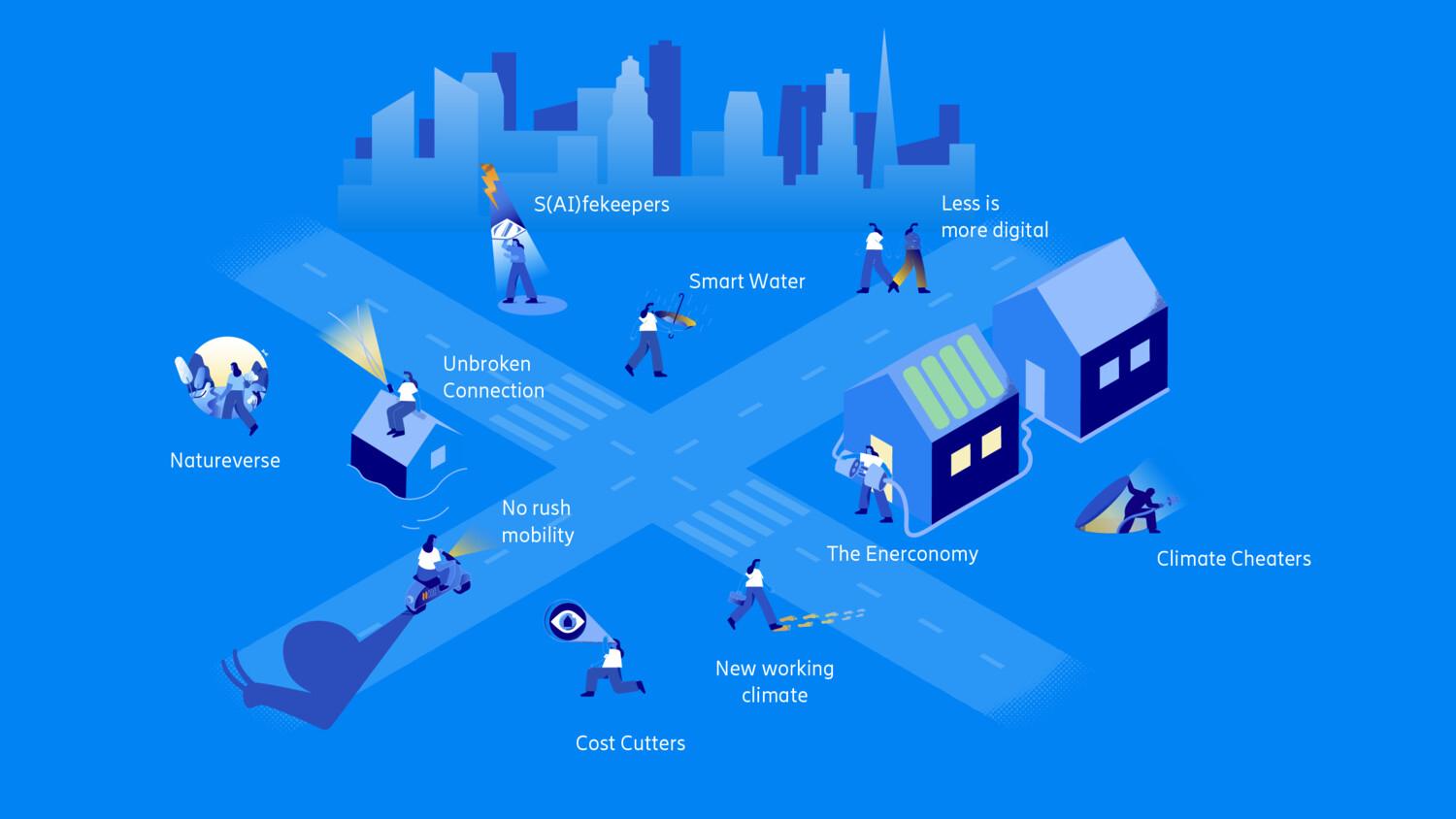
Almost 99% of the 15,000 global early technology adopters surveyed by Ericsson say they expect to be proactively using internet and connectivity-based solutions by 2030 to personally address the impact of climate change and global warming.
The statistic is included in the annual 10 Hot Consumer Trends research report from Ericsson ConsumerLab. This year's theme is "Life in a Climate-Impacted Future".
Some 83% of respondents believe that the world will have reached, or surpassed, the 1.5°C rate of global warming (above pre-industrial levels) deemed to be the limit above which more extreme weather events and negative climate consequences are likely.
About 55% of early adopters in metropolitan areas believe climate change will have a negative impact on their lives, and as a result they expect to turn to connectivity solutions as countermeasures.
Main concerns include: the cost of living, access to energy and material resources, and the need for safe and reliable connectivity in turbulent times and chaotic weather. Fifty-nine percent of respondents believe innovation and technology will be crucial to address everyday challenges caused by climate change.
The Ericsson researchers asked more than 15,000 early adopters of augmented and virtual reality (AR and VR) and digital assistants in 30 cities globally -- including Bangkok -- to evaluate 120 digital service ideas across 15 areas ranging from climate-related adaptation in everyday life to ways to handle dire weather events.
From the resulting data, they identified 10 trends that reflect consumers' concerns and responses.
"Consumers are clearly saying that reliable and resilient internet connection will be of utmost importance to their daily lives, and their personal efforts to address climate change, as they expect extreme weather changes and negative climate impact to be more common," said Magnus Frodigh, head of Ericsson Research.
While personal economy and lifestyle interests will be the top drivers of service adoption for respondents in the 2030s, possible new collective behaviours may result in big changes from daily life as we currently know it -- in areas such as how we work, when we work and work-life balance.
For example, the move away from "clock time", such as the traditional nine-to-five working day and routines, could be a key driver of the No-Rush Mobility trend. A society organised around energy use peaks and troughs, rather than clock time, could become common.
Respondents also expect the role of AI to extend into consumer behaviour -- as outlined in the Less Is More Digital trend -- for example to help shoppers reduce their material consumption impact by using digital alternatives to physical products.
THE TRENDS
1. Cost cutters: Digital services will help consumers control food, energy and travel costs in unstable climate situations. More than 60% of urban early adopters are concerned about higher costs of living in the future.
2. Unbroken connections: Reliable and resilient internet connections will become more important if and as extreme weather events increase. Some 80% of respondents believe there will be smart signal locators that show optimal coverage areas during natural disasters in the 2030s.
3. No-rush mobility: Strict time schedules may become a thing of the past as climate regulations and energy efficiency change the meaning of flexibility. About 68% of respondents would plan activities using schedulers that optimise outcomes based on energy cost, not time efficiency.
4. S(AI)fekeepers: AI is expected to power services that protect consumers during increasingly unpredictable and unstable weather. Almost half of respondents say they will use personalised weather warning systems for their own safety.
5. New working climate: Corporate carbon footprint constraints, rising costs and accelerated digitisation will shape work routines of the future. Seven in 10 respondents foresee company AI assistants planning commutes, tasks and resources to minimise work-related carbon footprints.
6. Smart water: As fresh water may become scarcer in the 2030s, consumers anticipate smarter water services to conserve and reuse water. Almost half of respondents say their household will use smart water catchers on roofs, balconies and windows that intelligently open when it is raining to catch and clean rainwater.
7. The Enerconomy: Digital energy-sharing services may alleviate the burden of rising energy costs in the 2030s. Energy could become a currency as 65% of respondents predict consumers will be able to pay for goods and services in kWh using mobile apps in the 2030s.
8. Less is more digital: Digital product replacements may become status markers as physical overconsumption could get both expensive and socially criticised. Dematerialisation of consumption habits could accelerate as one-third of respondents believe they will personally use shopping apps that suggest digital alternatives to physical products.
9. Natureverse: Experiencing nature in urban areas without travelling could be standard in the 2030s, in the face of continued climate change and potential travel limitations. Four in 10 respondents want to personally use a virtual travel service that lets them experience nature reserves and mountain trails in real time as if they were there.
10. Climate cheaters: Respondents say consumers will find ways to bypass stricter environmental restrictions due to higher prices and energy and water rationing. Over half of respondents predict online hacking apps will enable them to tap into neighbours' water or electricity supply illicitly.
To read the full report, visit https://bit.ly/3XMeSmU







